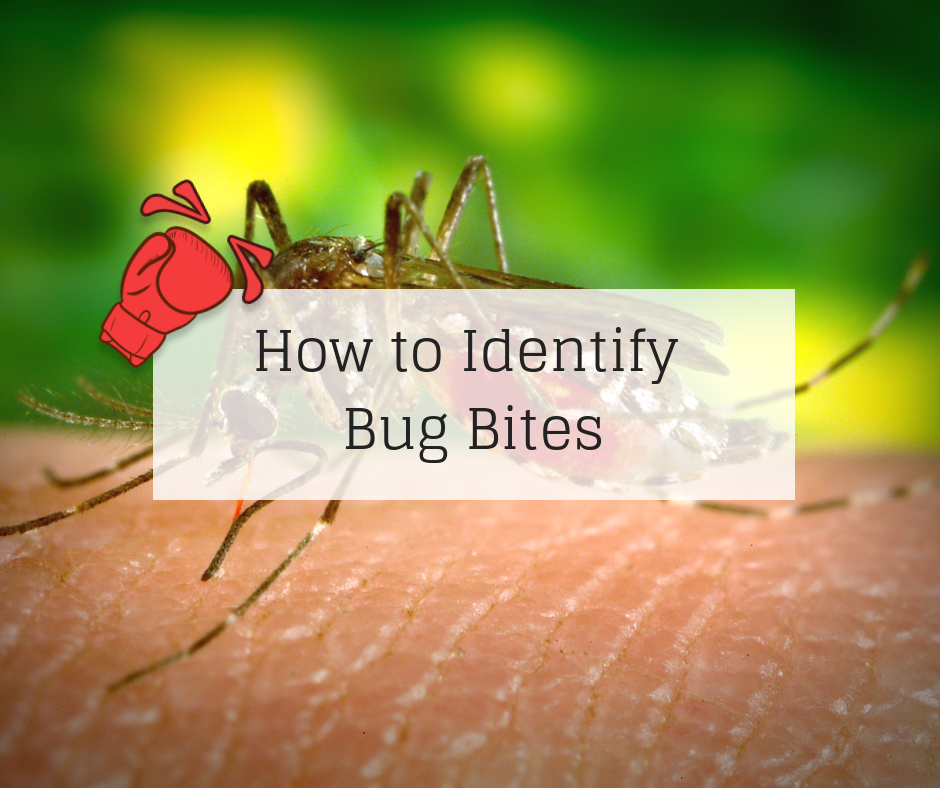
How to Identify Bug Bites
Biting pests like mosquitos, fleas and ticks are most active during the summer months and don’t bite out of self defense. Rather, they are in search of their next blood meal. While these pests may seem like more of a nuisance than a danger, they have the potential to transmit virus’ like West Nile and Lyme disease. So how do you know if your bite is a health threat?
Use the guide below to identify your bite:
- Mosquitos are often found near standing water. Their bites leave behind red, itchy bumps. To prevent your risk of mosquito bites, eliminate any standing water.
- Fleas tend to transport themselves on household pets and wild animals but are not exclusive to animals and may bite humans. Their bites tend to leave behind painful, itchy, red bumps. Their saliva can also cause allergy dermatitis. Prevent your risk of flea bites by practicing flea management with your household pets. This normally includes flea treatment during the warmer months.
- Ticks vary in color and size depending on their species and age. Ticks are often found near wooded areas. Their bites are among the most recognizable because the tick itself is actually latched onto or burrowed beneath the skin. If you notice a “bulls-eye” rash, this could indicate Lyme disease. Prevent tick bites by inspecting your skin after being outdoors. Carefully remove ticks before they have the chance to bite.
- Bed bugs are commonly found in or near beds. They are excellent hitchhikers and will hide in personal belongings in order to find food supply. Their bites are normally found on exposed skin while people are sleeping. Some people show no signs of bites, while others develop red, itchy welts. Prevent bed bug bites by inspecting your sheets and mattress for small red or brown spots. Do the same check each time you frequent a hotel.
To prevent pests before they strike, contact Knockout Pest Control. Our professionals are trained to identify the warning signs and develop preventative plans to keep you and your home pest free.
To learn more about pests, and pest control advice, visit our blog.

